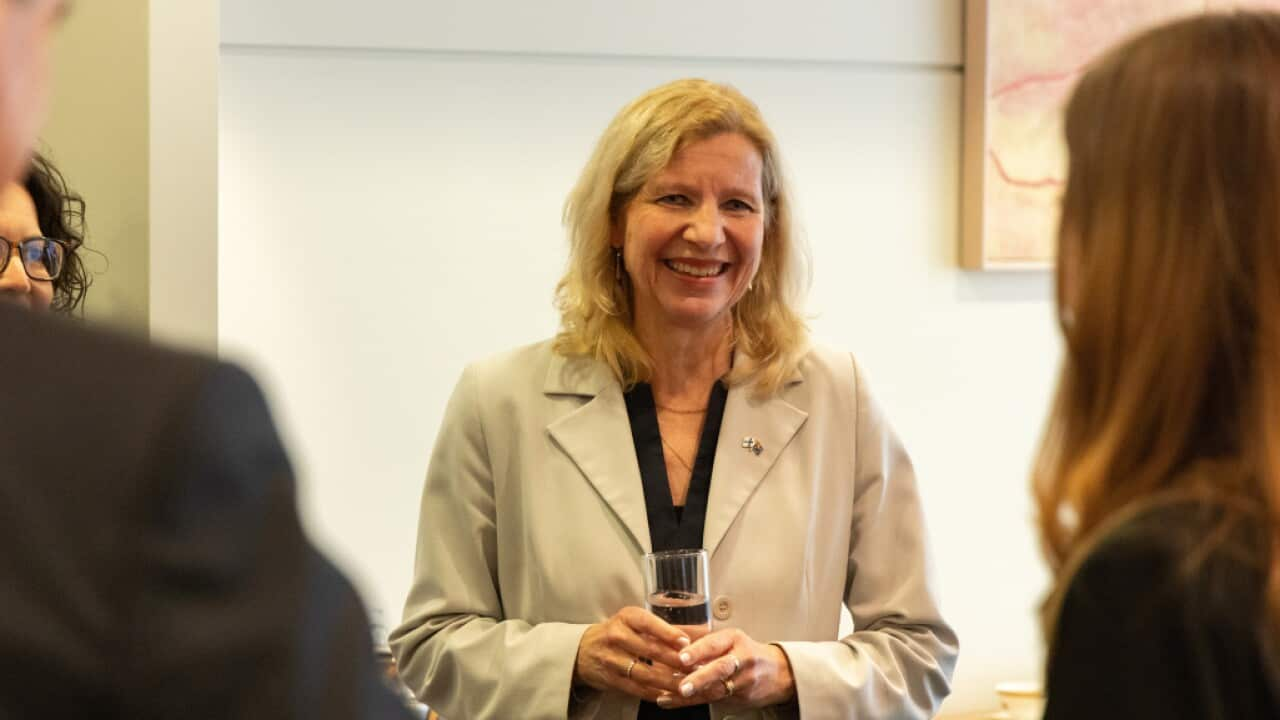A week after several Nordic nations issued advice to citizens on preparing for war or invasion, the Finnish undersecretary of state has told SBS: “Maybe now more than ever, we need partners like Australia”.
Outi Holopainen’s visit to Australia comes as Russia’s invasion of Ukraine approaches its third year, a scenario the Nordic nation is familiar with.
“We have experienced a war very similar to what Ukraine is going through now, where Russia illegally invaded its neighbour — a smaller country trying to defend its sovereignty,” she said.
Holopainen is referring to the Winter War of 1939 where Finland held off Russian forces long enough to secure a peace deal.
“Life has not been easy for Finland in the past, and it might not be easy for us in the future.”
“We do our utmost to support Ukraine in its fight now, but we also know that you have to be prepared,” she said.
“You have to prepare yourself, but you also need friends and allies.”
It was this thinking that saw the historically non-aligned nation
European and Pacific security cooperation
Holopainen believes Australia can play a critical role in upholding world order.
“We see now how the security of Europe and trans-Atlantic region is very much connected to the security in the Pacific region,” she said.
“Maybe now more than ever, we need partners like Australia to help us in building security, in building prosperity, in maintaining the international rules-based order, and in promoting multilateralism.”
While the Winter War of 1939 saw Finland secure peace, it also lost 9 per cent of its territory to Russia.
‘Sauna diplomacy’: Holopainen and Finland’s Ambassador to Australia Arto Haapea told SBS News that the sauna is a great way for diplomats to relax Credit: Ryan Hemingway / Department of Foreign Affairs and Trade
At the G20 summit in Brazil earlier this month, Turkey’s President Recep Tayyip Erdoğan proposed a similar peace deal, that would see Ukraine accept new borders along the current front line and delay NATO membership by a decade.
Asked if she considered such a deal acceptable — or inevitable — Holopainen said: “It is very difficult to say what will be inevitable.”
“We know from the past that it is not good for anybody for there to be grey zones in Europe … and our conclusion was to join NATO. So maybe that is our answer?”
As to whether NATO should accelerate Ukraine’s membership, she said: “We have to be realistic.”
But a looming Donald Trump presidency adds another dimension for Europe.
The US president-elect has bragged he would end the war in Ukraine “within 24 hours” of entering office.
Many also believe Trump will force negotiations upon Ukraine, or potentially embolden Vladimir Putin, who many Ukrainians believe Trump is closer to than President Volodymyr Zelenskyy.
“Of course, we would like to see peace … but it has to be a just peace for Ukraine. It has to be a peace that respects the UN Charter, and Ukraine’s sovereignty and territorial integrity,” Holopainen said.
“Because if we give in to the aggressor, that gives a very bad example to any other bad actor.”
Russia’s invasion of Ukraine has prompted a transformation of Finland’s foreign and security policy, with the government this year naming Australia on a priority list of nations with which to deepen relations — one of just three non-NATO countries.
Nordic nations prepare for crisis
Finland launched a website in mid-November gathering information on preparedness for different crises.
Among other things, the website contains information about the nation’s conscription system, evacuation, emergency supplies and civil defence shelters.
Finland, which shares a 1,340-kilometre border with Russia, has also announced plans to build a 200-kilometre fence along parts of that border. Three metres tall and topped with barbed wire, it is due to be completed by 2026.
The country last year closed its eight border crossings with Russia, following an influx of migrants which Helsinki claimed was a hybrid attack orchestrated by Moscow.
Meanwhile, Finland’s neighbour Sweden has begun sending millions of pamphlets advising residents on how to prepare for possible war.
Since the start of the war in Ukraine, Sweden has reintroduced limited conscription, massively increased defence spending and repeatedly urged its citizens to prepare both mentally and logistically for the possibility of an armed conflict.
‘There has been some lagging behind’
Holopainen is advocating for a more proactive and militarily prepared Europe — especially if US support wanes.
“There has been some lagging behind,” she said.
“In Finland, we never stopped investing in our in our military defence, and we really see the need for that to continue, and for other European countries to do the same.”
Australia is 13,000 kilometres from Finland but Holopainen views the two “theatres” as “very much connected.”
“Everything that we do in Europe can have an impact also [in Australia] and the other way around.”
“Only through cooperation can we make sure voices that represent liberal democracy… can be heard.”
With additional reporting by Agence France-Presse

